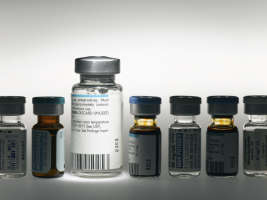Why does Gleevec, a leukemia drug that costs $70,000 per year in the United States, cost just $2,500 in India?
It's seemingly simple. Gleevec is under patent in the U.S., but not in India. Accordingly, Novartis, its Swiss-based manufacturer, may prevent competitors from making and selling lower-cost versions of the drug in the U.S., but not in India.
Why Chemotherapy That Costs $70,000 in the U.S. Costs $2,500 in India
Copper on ICU surfaces reduces infections such as MRSA by half
U.S. researchers say they found using copper objects in hospital intensive care unit rooms cuts healthcare-acquired infections by more than half.
Copper -- and brass -- don't spread germs because they kill microbes on their surfaces continuously.
Healthcare-acquired infections such as methicillin-resistant Staphylococcus aureus and vancomycin-resistant Enterococcus often contaminate items within hospital rooms, allowing bacteria to transfer from patient-to-patient.
U.S. ranks near bottom of UNICEF report on child well-being
 The United States ranked in the bottom four of a United Nations report on child well-being. Among 29 countries, America landed second from the bottom in child poverty and held a similarly dismal position when it came to “child life satisfaction.”
The United States ranked in the bottom four of a United Nations report on child well-being. Among 29 countries, America landed second from the bottom in child poverty and held a similarly dismal position when it came to “child life satisfaction.”
Keeping the U.S. company at the bottom of the report, which gauged material well-being, overall health, access to housing and education, were Lithuania, Latvia and Romania, three of the poorest countries in the survey.
The Food Industry’s Overuse Of Salt Contributes To Almost 100,000 American Deaths Every Year
In a new study published in the online edition of the British Medical Journal, researchers write that a 50 percent reduction in daily salt intake “could prevent approximately 100,000 deaths from heart attack and stroke in the United States every year.”
Curbing salt intake by that high a margin is certainly a mean feat — but not because Americans are saturating their food with sodium. Rather, study authors suggest that the real culprits are food makers who douse their products with harmful levels of salt.
Experimental vaccine shows promise for ovarian cancer

The promising results of a phase 1 clinical trial for the immunotherapy approach also showed that seven other women had no measurable disease at the end of the trial, the researchers added.
Lead poisoning toll revised to 1 in 38 children in US
More than half a million U.S. children are now believed to have lead poisoning, roughly twice the previous high estimate, health officials reported Thursday. The increase is the result of the government last year lowering the threshold for lead poisoning, so now more children are considered at risk.
Too much lead can harm developing brains and can mean a lower IQ. Lead poisoning used to be a much larger concern in the United States, but has declined significantly as lead was removed from paint and gasoline and other sources.
Scientists unravel genetic causes of prostate, breast and ovarian cancer
 A national screening programme for prostate cancer could be introduced by the NHS following an international effort by more than 1,000 scientists to unravel the genetic causes of prostate, breast and ovarian cancer.
A national screening programme for prostate cancer could be introduced by the NHS following an international effort by more than 1,000 scientists to unravel the genetic causes of prostate, breast and ovarian cancer.
The study, the largest to look for the faulty DNA that drives the cancers, revealed scores of genetic markers that can identify people most likely to develop the diseases.
More Articles...
Page 50 of 233

 Health Glance
Health Glance






























